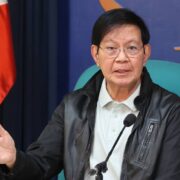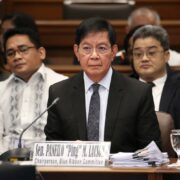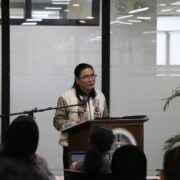Deception behind PhilHealth budget

President Marcos has ordered the return of P60 billion to the Philippine Health Insurance Corp. (PhilHealth)—a belated but welcome move to correct an unlawful action at the expense of members of the state health insurer, especially the poor and marginalized.
The President’s directive, which preempts a ruling from the Supreme Court, came a day before Sept. 21, when large demonstrations were mounted across the country to condemn widespread corruption in the government’s flood control projects.
To recall, the Department of Finance (DOF) ordered in February last year the transfer of PhilHealth’s “unutilized” funds amounting to P89.9 billion to the national treasury. The move was authorized by a special provision inserted in the 2024 General Appropriations Act allowing for the collection of unprogrammed appropriations from government-owned or -controlled corporations, including PhilHealth.
This, however, went against PhilHealth’s charter, which mandates that its funds be used exclusively for members’ coverage and benefits, as well as Republic Act No. 11223, also known as the Universal Health Care Act, which stipulates that funds should be utilized to improve access to quality services.
Former senator Aquilino Pimentel III, former finance undersecretary Cielo Magno, and the Philippine Medical Association, among others, went to the Supreme Court to question the constitutionality of the transfer and seek a temporary restraining order (TRO). When the high court issued a TRO in October 2024, P60 billion had already been transferred in three tranches: P20 billion in May, P10 billion in August, and P30 billion in October.
Lack of clarity
Petitioners are now urging the high court, which concluded its oral arguments back in April, to still release its much-delayed final ruling, as this could set a precedent for similar actions in the future.
Malacañang should also answer questions on how the funds will be returned. PhilHealth said it was not aware of how this will be facilitated. Some lawmakers at the House of Representatives have suggested that it be done through the 2026 national budget, a move that others said could be equally problematic.
Despite the lack of clarity on the process, the DOF and the Department of Health (DOH) have already announced where the P60 billion will be spent: P27.45 billion to pay outstanding payables for health emergency allowances (HEA) of health workers who served during the COVID-19 pandemic; P13 billion to finance health-related foreign-assisted projects; P10 billion to cover the Medical Assistance for Indigents and Financially Incapacitated Patients; P5.06 billion to enhance health facilities, including three DOH health facilities; and P4.1 billion to procure various medical equipment for DOH and local government hospitals and primary care facilities.
Continuing failure
Stakeholders should ensure that the funds will be funneled to these programs as intended and will not be lost in bureaucratic processes, or worse, corruption. In particular, health workers who have been waiting for the HEAs should keep on reminding the government of what they are owed until the DOH pays up.
The Action for Economic Reforms (AER) has also called on Mr. Marcos to sanction officials behind the fund transfer. Named as respondents in GR No. 274778 (Pimentel vs. House of Representatives) were former speaker Martin Romualdez, former Senate president Francis “Chiz” Escudero, Finance Secretary Ralph Recto, Executive Secretary Lucas Bersamin, and former PhilHealth president Emmanuel R. Ledesma. “The return of funds does not absolve the Marcos administration of its violation of laws and constitutional provisions, as well as its continuing failure to adequately fund PhilHealth,” AER said.
It pointed out that the government has “consistently failed to ensure that PhilHealth receives its share of revenue from sin taxes, the Philippine Amusement and Gaming Corp. and Philippine Charity Sweepstakes Office.”
Universal health care
The state health insurer is not receiving a single centavo in subsidy from the national government this year; its proposed budget of P53.3 billion for next year is also deemed inadequate to finance its various programs, including expanded benefits, the primary care package through Yaman ng Kalusugan program (formerly Konsulta), and the Marcos administration’s ambitious zero balance billing initiative.
In addition, as of January this year, PhilHealth still owes between P4 billion and P6 billion to the Private Hospitals Association of the Philippines Inc. for services rendered from 2020 to 2023.
These issues only show the deception behind PhilHealth’s “excess funds.” How can the backbone of the country’s public health care program fulfill its mandate to improve access to affordable health care, cover premiums for all members, and deliver universal health care to every Filipino if its finances are not in good shape? The government should not be allowed to dip its fingers into PhilHealth’s funds ever again.

















Nowhere to run